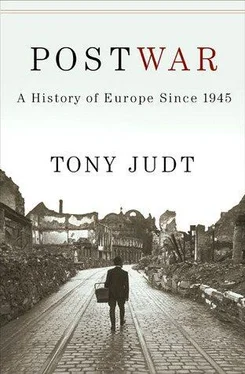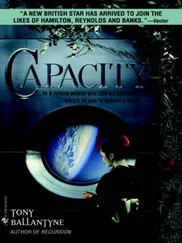Maurras died in 1952, aged 84. Salazar himself, the son of an estate manager, was born in Vimeiro, Portugal, on April 28th 1889, just a week after Hitler. For a man still ruling a European state in the late 1960s he was unusually deeply rooted in the mores of the previous century—his mother was born in 1846.
By 1973, Western Europe accounted for two-thirds of Portugal’s imports and exports alike.
The puritanical young officers and their left-wing allies were not, however, well-pleased with the subsequent outpouring of what they regarded as pornographic literature and films, as Portugal compensated for fifty years of cultural constriction. They even attempted at one point to ban the playing of fados , the traditional Portuguese folk songs: these, they felt, encouraged ‘bitterness and fatalism’ and were thus inimical to their goals of enlightenment and social progress.
As recently as 1963 the Spanish leader had not hesitated to execute a captured Communist, Juan Grimau, in defiance of widespread international criticism.
One ironic consequence of the carefully calibrated freedoms that Franco allowed to university activists in his last decade is that Spanish students of the Sixties generation typically exaggerate in retrospect the role they were to play in their country’s subsequent struggle for democracy.
See Chapter 7. As a result, Catholic leaders, unsullied by any Francoist past, were able to play an active role in the transition to democracy, serving as a ‘bridge’ between radicals and conservatives.
One month before it was declared legal, the PCE hosted in Madrid a public meeting of the Eurocommunist parties of Western Europe.
The socio-geographical breakdown of the 1977 vote was uncannily close to that of the elections of 1936—the country’s political culture had in effect been placed in cold storage for four decades.
Article 151 of the Constitution offered ‘home rule’ to any region requesting it.
There were to be two further plots against king and parliament, in 1982 and 1985, both easily foiled.
By the mid-Eighties official unemployment data suggest that more than one in five of the working-age population was out of work. The real figure was probably closer to one in four. In a country still lacking a fully functioning social safety net and where few people had private savings, these figures indicate widespread hardship.
In 1982, the PSOE campaigned on the slogan ‘OTAN, de entrada no!’ Four years later, their posters read ‘OTAN, de entrada si!’
The traditional Socialist platform of nationalization hardly applied in Spain, where the authoritarian state already owned much of the official economy.
Spain’s new constitution of 1978, whose design was aimed above all at reconciling the antagonistic poles of Spanish history—Left/Right; Church/anti-clericals; center/periphery—was conspicuously silent about the regime it replaced.
His films—most recently La Mala educación ( Bad Education , 2004)—were also quite pointedly anti-clerical; perhaps the one respect in which Almodóvar remains consistently faithful to an older tradition of Spanish cultural dissidence.
Victor Perez-Diaz, Spain at the Crossroads. Civil Society, Politics and the Rule of Law (Cambridge, MA, 1999), p. 65.
On both occasions the capital, Oslo, voted heavily in favor. But the decision was carried by an anti-European coalition of radicals, environmentalists, ‘linguistic nationalists’ and farmers from the country’s coastal and northern provinces, along with fishermen vehemently opposed to the EEC’s restriction of the exclusive coastal fishing zone to just twelve miles. Denmark’s entry also brought in Greenland, at the time still governed from Copenhagen. But after Greenland achieved self-rule in 1979, a referendum was called in which the country voted to leave the EEC, the only member-state ever to do so.
This was offset, however, by new investment opportunities for the private sector: the proportion of foreign-owned shares in Spanish companies rose 374 percent in the years 1983-1992.
More than one influential voice was raised in Brussels entreating the European Commission to call his bluff…
Of course the Common Agricultural Policy, the other major charge on the EU budget, had long had the effect of exacerbating the very regional distortions that the Cohesion Funds and others were now supposed to help eliminate…
Richer countries were typically less beholden to Brussels and maintained closer control of their affairs. In France, despite the ‘decentralization’ enshrined in laws passed during the 1980s, the reins of budgetary power stayed firmly in Parisian hands. As a result, prosperous regions of France followed the international trend and benefited from their EU links, but poor districts remained dependent on state aid above all.
The ‘Schengen zone’ has since been expanded to encompass other EU member states, but the UK has remained outside and France, among other participants, has reserved the right to re-impose border controls on security grounds.
Were it not for the distinctly upward curve of the birth rate in immigrant communities from Asia, Africa and the Caribbean, the figures would have been even lower.
In Eastern Europe it was Hungary, where the ‘underground’ economy (see Chapter 18) furnished many people with a higher standard of living than elsewhere in the Bloc, which first reached comparably low birth-rates in these same years.
The highest level of resentful anger was to be found in the public service unions, covering underpaid government employees from dustmen to nurses. The major industrial unions were far more sanguine about Callaghan’s cuts: so long as Labour kept its promise to protect the traditional skilled industrial workers and leave their privileges intact, their leaders were pleased to tolerate the government’s apostasy. They were rather taken aback to discover that no such deals could be cut with Mrs. Thatcher.
In 1996 (its last year of existence) Britain’s nationalized railway network ‘boasted’ the lowest public subsidy for a railway in Europe. In that year the French were planning for their railways an investment rate of £21 per head of population; the Italians £33; the British just £9.
And private poverty, too. By breaking the link between pensions and wages, Thatcher sharply reduced the retirement income of most of her fellow citizens. By 1997 UK public pensions were just 15 percent of average earnings: the lowest ratio in the EU.
In the decade following her retirement, Margaret Thatcher’s heirs at the Conservative helm declined from the tiresomely humdrum (John Major), through the bumptiously inadequate (William Hague), to the terminally inept (Iain Duncan Smith). After the long reign of the Sun Queen there ensued a deluge of mediocrity.
Читать дальше












